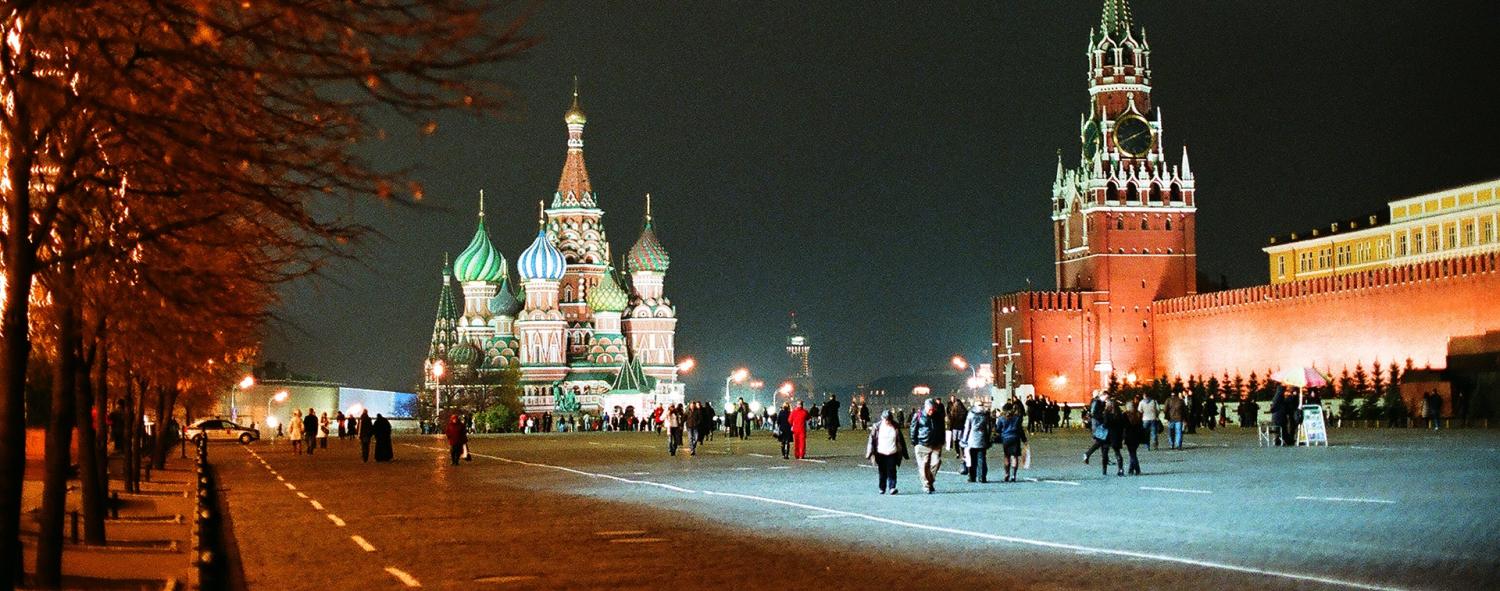It was a short week for The Interpreter, with Australia Day falling on Thursday, but as I review the week, I notice it was full of deep thoughts about big subjects, such as Hugh White's piece considering Francis Fukuyama's 'The End of History and the Last Man', twenty-five years on:
The model went wrong way back in the beginning, with Fukuyama’s focus on ideology. That diverted attention away from the two factors which have done most to shape today’s global order. Economic weight has shifted far faster than was realised, especially to China, and nationalism of a very old-fashioned kind persists, driving rivalry between major powers today very much as it did in the 19th and early 20th centuries. Meanwhile America has proved to be much less preponderant militarily than the old model assumed.
And here's Matt Dal Santo on what Russia now wants from a weakened West:
The election of Donald Trump as president of the United States of America has elicited thousands of lines of newsprint as academics, journalists and the wider public seek to make sense of its implications. It has occasioned no less speculation in Russia, much of it shot through with a strong sense of Russia’s unexpected good luck. A year ago Russia, already isolated over Ukraine, was the target of intense Western condemnation as a result of its intervention on the side of the government of Bashar al-Assad in Syria. Today, things look very different.
Here's Richard Johnson on the renewal of the British Left:
Labour must rediscover its confidence in the British public and political institutions, embracing a Britain that continues to take a strong stand in world affairs while remaining committed to the protections of those who call the UK home. It means becoming a truly internationalist party again.
In 'Spycatcher Revisited', Geoff Kitney revisited Malcolm Turnbull's colourful past with the intelligence world to ask what implications it might have for the current review of our spy agencies:
For Turnbull, who three decades ago personally inflicted a brutal lesson on the British intelligence establishment by using legal argument to expose its over-zealous secrecy, arrogance and duplicity, the task now will be to address the challenges of national security from the other side of the fence. The security of the nation is Turnbull's first responsibility as Prime Minister, but one for which some with long memories question Turnbull's credentials. Right wing activists and arch-conservatives have warned that Turnbull's historic libertarian and 'leftist' instincts may bias him against the intelligence agencies and their work.
Stephen Grenville was not thinking small thoughts either. 'What's ahead for the global economy?', he asked:
For all forecasting’s demonstrated imperfections, sensible policy-making requires some view on where the economy is headed. Perhaps the best way forward is to embed the raw forecast numbers into a narrative format, which the IMF does in its twice-yearly World Economic Outlook publication. What would the current narrative be? For the crisis-affected economies, it would explain why the post-2008 recovery has been so lacklustre (the 'why' to Lagarde’s observation on below-average growth) and why these countries can’t get back to the pre-2008 trend. For the emerging economies, it might focus of why some are doing well while others are doing so badly. This narrative approach would, at least, link forecasts with the policy debate and remind us that, unlike the weather forecast, economic forecasts can influence the outcome.
Euan Graham parsed President Trump's odd speech to the CIA:
For the senior CIA leadership present, however, I believe Trump’s comments took on a painful 'dog whistle' pitch. They are likely to connect Trump’s media complaints and call for 'honest reporting' with the intelligence community’s ongoing investigation into Russian election interference. Indeed, shortly after Trump’s CIA visit, Devin Nunes announced to CNN that alleged leaks to the media are going to be investigated by Congress.
Here's Rebecca Barlow on how Iran's women are engaging with its upcoming elections:
Unlike the 2013 presidential elections, when there was a groundswell of support to end Ahmadinejad’s rule and usher in the moderate camp, in 2017 some women feel 'there are no better options' than to re-elect the incumbent, despite a perception that he has been a disappointment for the women’s movement.
Lauren Williams had this update on the Syria talks in Astana:
...the talks are being moderated by Syrian government ally Russia, in the capital city of a former Soviet republic, without US involvement, at a time when the military conditions on the ground put the ball firmly in Russia’s court. The Syrian army's conquest in the contested city of Aleppo with heavy backing from Russian air power late last year has forced the rebels to concede that they will have to deal with Russia if any progress is to be made. A US delegate was allocated mere observer status in the talks.
What can democracies do against Russian cyberattacks? Brendan Thomas-Noone addressed this question:
One thing missing from the debate, however, is consideration of a key part of the US intelligence community's report. This found the hacking of the Democratic National Committee was one element of a multifaceted operation. As the report states, the influence campaign blended 'covert intelligence operations – such as cyber activity – with overt efforts by Russian Government agencies, state-funded media, third-party intermediaries, and paid social media users or "trolls”.'
Photo by Flickr user Andrey Naumov.
